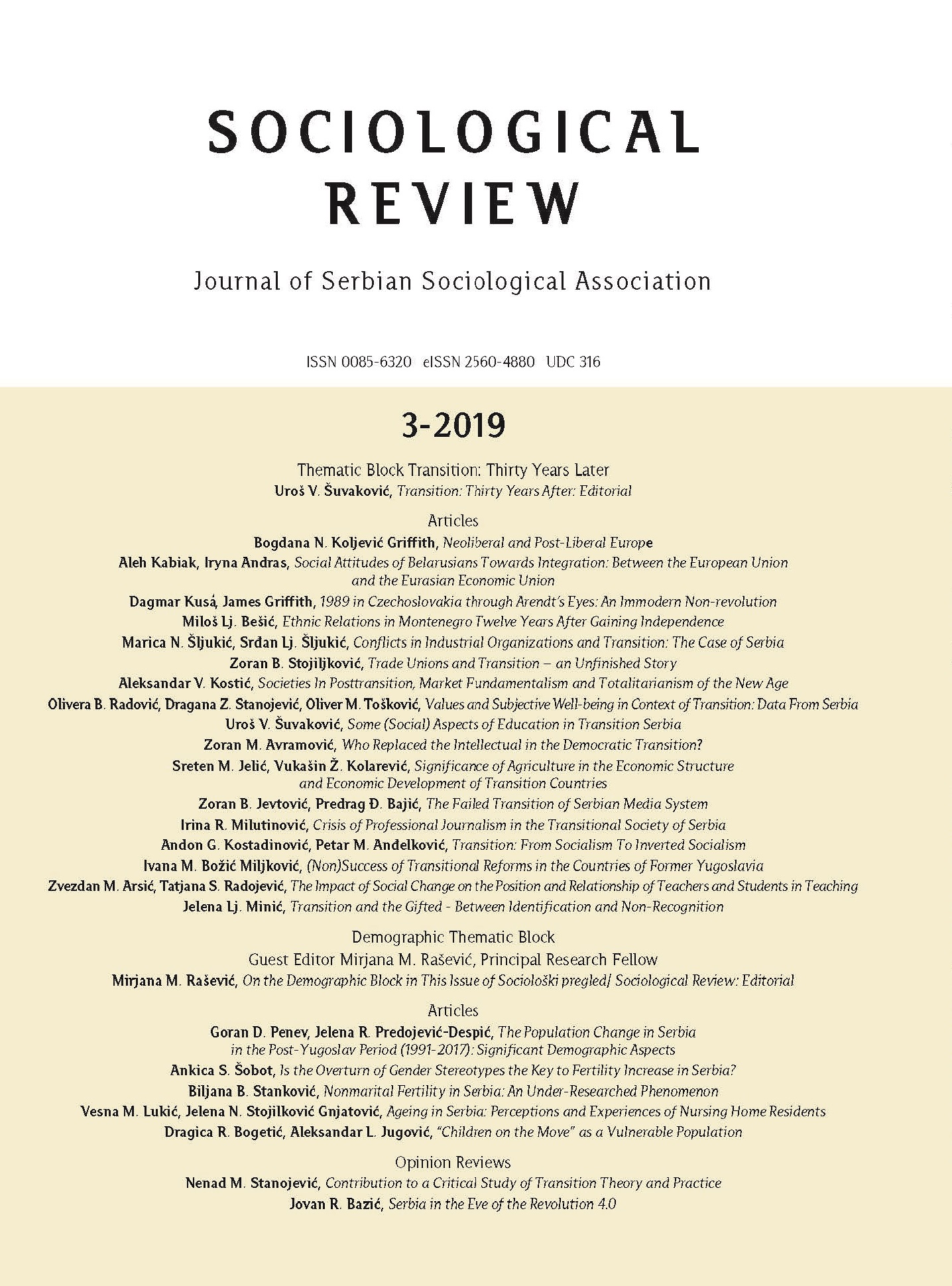Values and Subjective Well-being in Context of Transition: Data From Serbia
Values and Subjective Well-being in Context of Transition: Data From Serbia
Author(s): Olivera Radović, Dragana Stanojević, Oliver ToškovićSubject(s): Social Sciences, Psychology, Sociology, Social psychology and group interaction, Globalization
Published by: Српско социолошко друштво
Keywords: values;circular model;well-being;self-determination theory
Summary/Abstract: This research explores two main objectives: 1st is to examine whether the Schwartz’s value theory (Schwartz et al., 2012) can be applied to the Serbian sample, and 2nd is to examine the intensity and the direction of the relation of those values with cognitive and affective components of subjective well-being in the specific socio-political context, which Serbia as a country in transition represents. The sample includes 412 adults, with the average age of M = 34.42 (SD = 6.305). The following self-description measures are used: the Portraits Values Questionnaire (PVQ-RR, Schwartz et al., 2012), The Satisfaction with Life Scale (Diener, Emmons, Larsen & Griffin, 1985), and Serbian Inventory of Affect based on the Positive and Negative Affect Schedule-X (SIAB-PANAS, Novović & Mihić, 2008). Gathered results demonstrate that the values established by the revised Schwartz’s model are adequately organized in our sample. Obtained relations between those values and the subjective well-being components can be regarded as expected and in accordance with the healthy values perspective referring to the relation of values and SWB. Finally, the implications of the obtained results are discussed.
Journal: Социолошки преглед
- Issue Year: 53/2019
- Issue No: 3
- Page Range: 908-942
- Page Count: 35
- Language: English, Serbian

